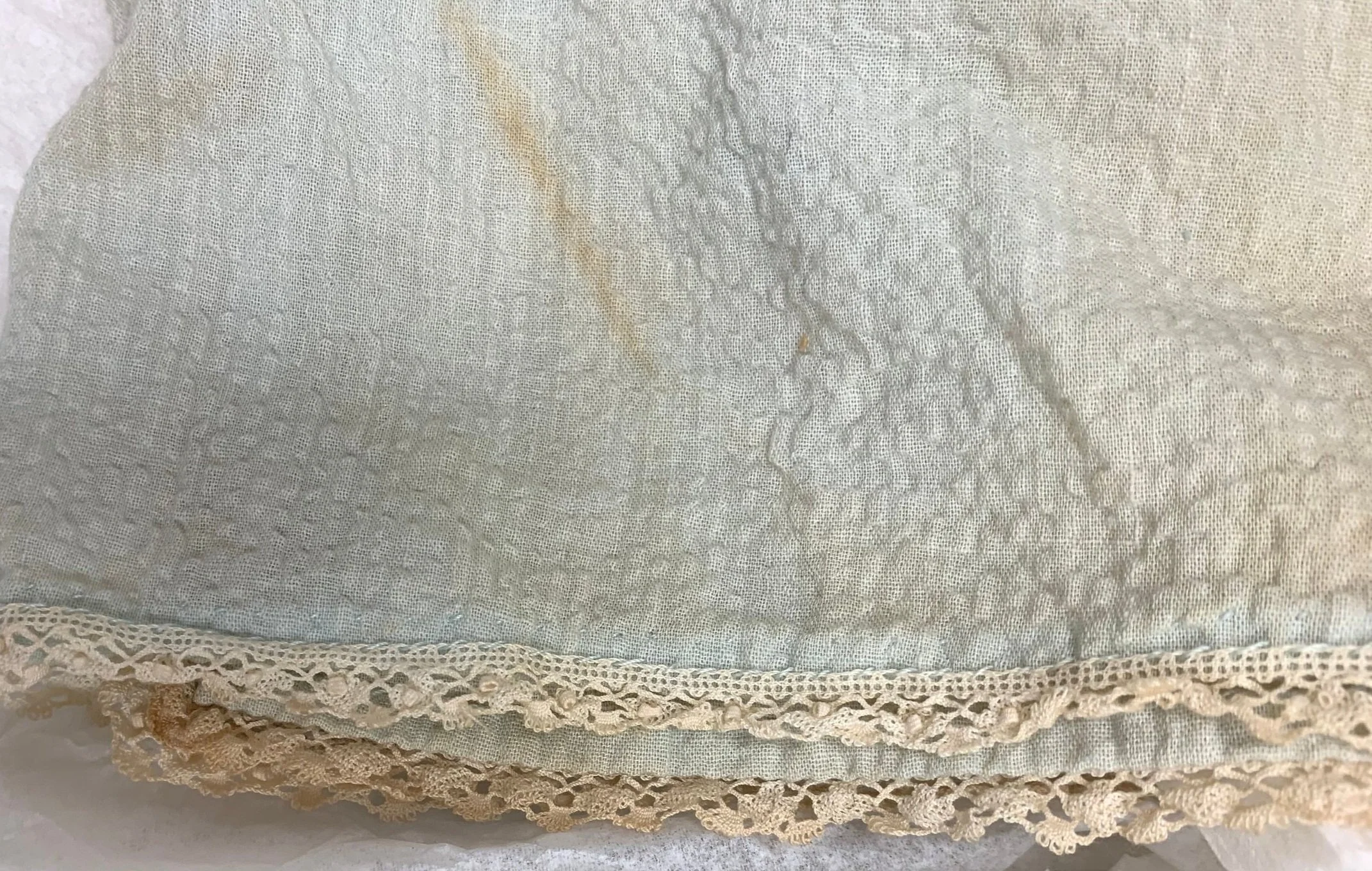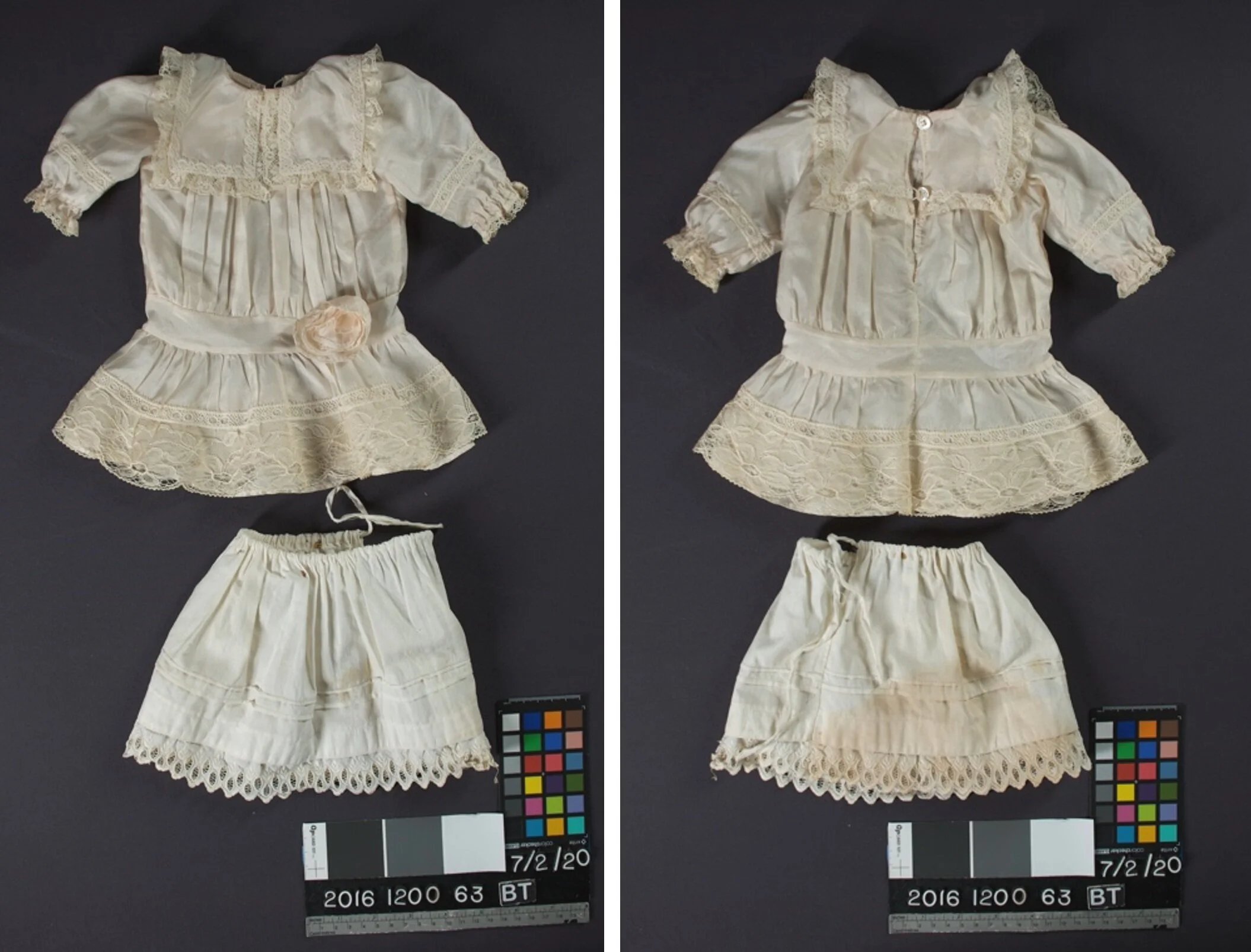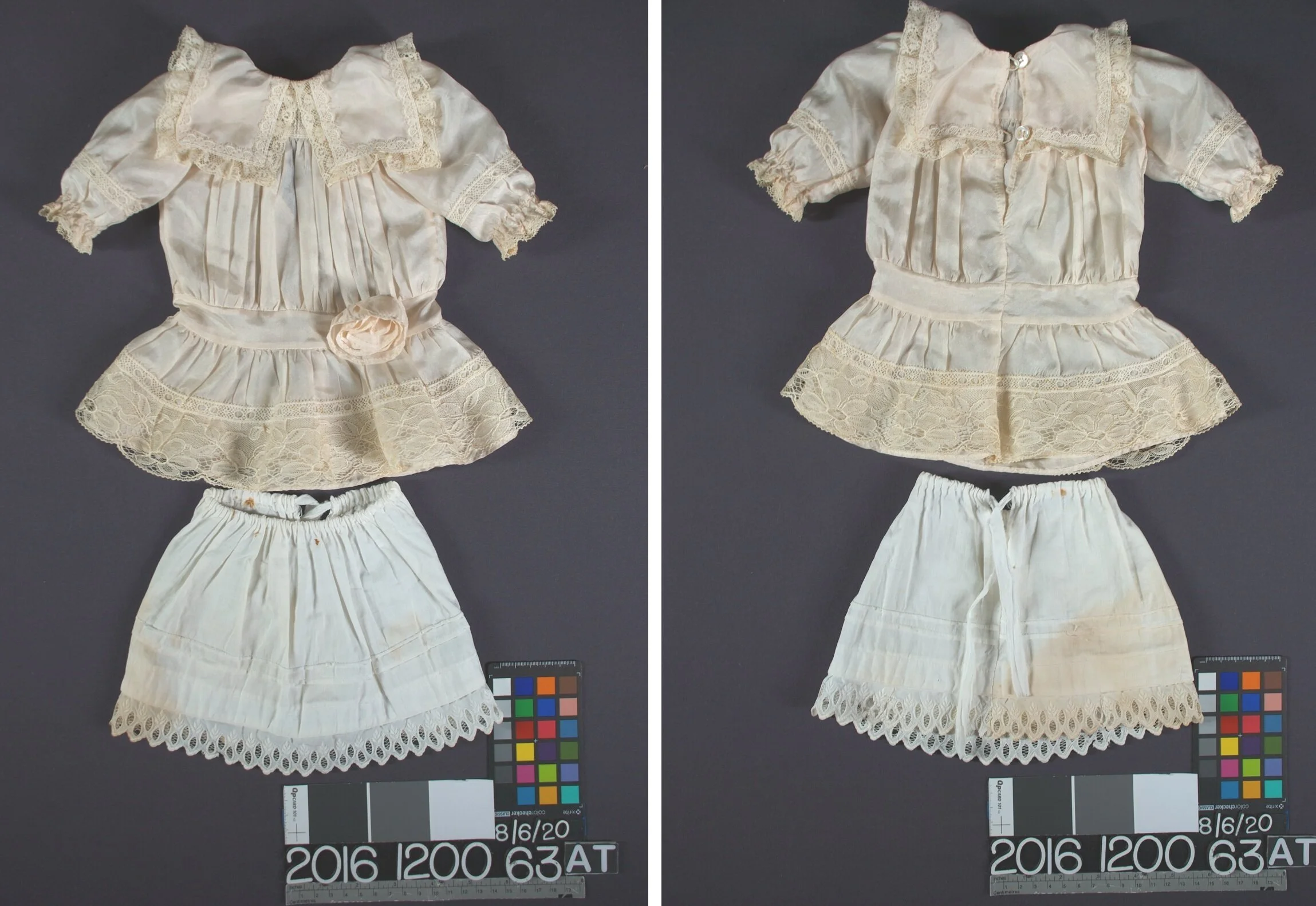
Doll in gown and slip, Before treatment
Condition Before Treatment
The gown and slip were in good structural condition and poor aesthetic condition. Both were yellowed and creased overall with localized areas of darker brown staining.
Boy Doll Gown and Slip
German
1890-1930
Abby Aldrich Rockefeller Folk Art Museum, Colonial Williamsburg Foundation
Cotton seersucker, silk ribbon, cotton lace and slip
This is a gown made of pale blue cotton seersucker and an undyed cotton slip from an Armand Marseille (head) doll. The gown opens down the center front and ties at the neck with two silk grosgrain ribbons. The cuffs, collar, hem, and opening are all edged with the same white cotton machine-made lace.
The sleeveless slip is made of plain weave undyed cotton. It has a single shell button closure on the proper right shoulder. The armscyes, neck, and hem have a scalloped, embroidered edge.
Condition After Treatment
The gown and slip are in good structural condition. Significant amounts of acidic degradation products were removed in bathing using a 1% (w/v) solution of Orvus WA paste followed by a 0.5% (w/v) solution of trisodium citrate adjusted to pH 7.6 with citric acid. The gown and slip are in good aesthetic condition. The overall discoloration and concentrated areas of staining have been significantly reduced. Colorimetry readings of the darkest stains on both garments demonstrated deltaE values ranging between 9 and 17.5.
Doll in gown and slip, After treatment
Before treatment
Condition Before Treatment
The dress and skirt were in fair structural condition and fair aesthetic condition. There were creases in both. Small brown stains were present on the dress. The underskirt had large brown stains, as well as iron stains at the waist. There were numerous losses in the underskirt, including in the eyelet underlay.
Doll Dress and Underskirt
German
1890-1900
Abby Aldrich Rockefeller Folk Art Museum, Colonial Williamsburg Foundation
Rayon, cotton lace and underskirt
This is a machine-sewn costume for a walking female doll. The dress has a large square collar, a pleated bodice, and drop waist. It has long sleeves that are fitted with two bands of elastic at the cuffs, and the waistband is decorated with a rosette of the same fabric as the dress. Both the collar and sleeves are edged in white lace. There is a narrow band of white lace on the sleeves, 1” above the cuff. n total, six different types of machine-made lace are utilized on this dress.
The underskirt has a gathered waist and closes at the center back using linen draw strings. The underskirt is decorated with two horizontal tucks and a cotton eyelet underlay.
Condition After Treatment
The dress and skirt are in good structural condition and fair aesthetic condition. Creases in both are reduced, and the damage in the eyelet is stabilized. The iron staining on the underskirt is reduced and is no longer positive for the presence of iron (II) ions, after bathing with a 1% (w/v) solution of Orvus WA paste followed by a 1% (w/v) solution of EDTA adjusted to pH 7.5 with NaOH. The staining on the underskirt is reduced but still present. Colorimetry readings of both stained and unstained areas before and after treatment demonstrated deltaE values between 7 and 9.
PLM confirmed the body of the dress as rayon. Due to the location and size of the staining, it was not deemed necessary to risk wet cleaning the rayon.
After treatment
Images courtesy and copyright of the Colonial Williamsburg Foundation




